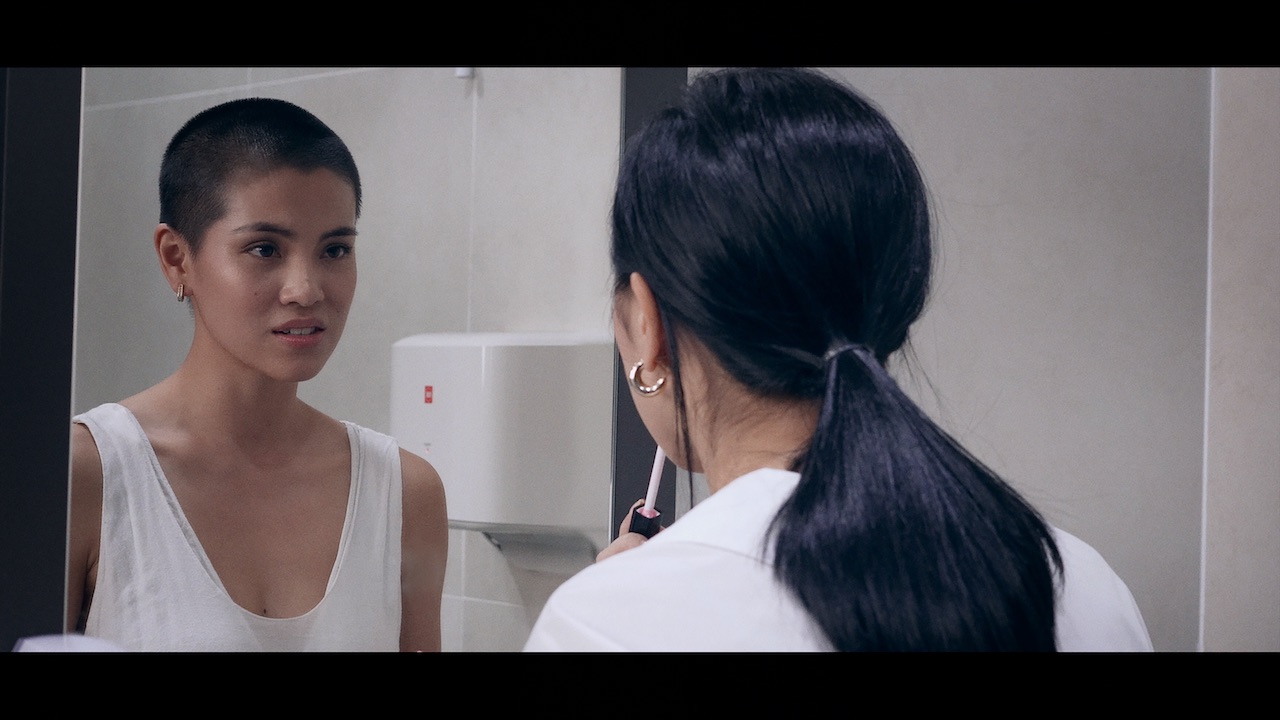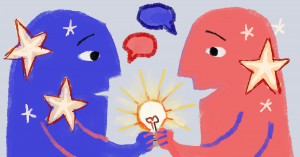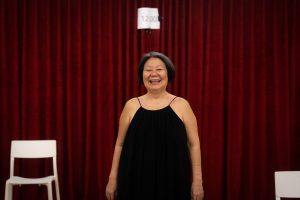Barely 10 minutes into our conversation, Ken Kwek decides to break my heart. He tells me the true story of a sexual assault survivor who felt compelled to reach out to her perpetrator after the incident to reconnect and make things right.
“She wanted to remember the incident in a different way, to reach out and say, ‘Look, can we go on a proper date instead? Can we hold hands? Can we make up and make out properly?’,” his voice cracks under the strain of sympathy.
“It sounds irrational and counterintuitive and perhaps it is, but from a psychological and emotional point of view, it’s perfectly understandable.”
As the playwright grasps for the right words to explain to me the psychological complexity of the situation, I bite my tongue. I want to tell him that I already intuitively understand her reasons for ensuring all was well in her relationship with the perpetrator.
After being blindsided by a sexual violation, there’s often a post-traumatic instinct to rewrite the narrative so the survivor can regain control over the situation. For some people, talking to their perpetrator and pretending everything is fine is the only way they can heal and move on, even though doing so could complicate the situation legally if the survivor decides to lodge a report.
This grey area forms the core of the unnerving discomfort that binds the 100-odd stories Ken gathered as research for his upcoming play with Pangdemonium, This is What Happens to Pretty Girls.
While some of these stories he heard include egregious recounts of violent rape, domestic abuse, and even incestuous abuse, the play focuses on three everyday themes that many can identify in their daily lives. These are workplace sexual harassment, toxic masculinity, and the ambiguity that arises between men and women on dates when consent is not explicitly negotiated for reasons like “nervousness”, “lack of awareness”, or “simply the entitlement that men can feel to not negotiate consent”.
In particular, Pam Oei, one of the cast members, shares that negotiating consent isn’t always clear-cut. Some women might feel uneasy going through with something, but expressly refrain from speaking up because they want to get it over and done with quickly. “Letting it happen” can be the “fastest way to get out”, which is a defence mechanism few people truly understand until they’re faced with a similar situation.
After reading the two stories mentioned above, you may feel divided or you may instantly think, “Me too”. Whatever the case, the scenarios depicted in the play will force you to lean into that discomfort because they involve banal situations, ordinary people, and a fuckton of blurred lines.
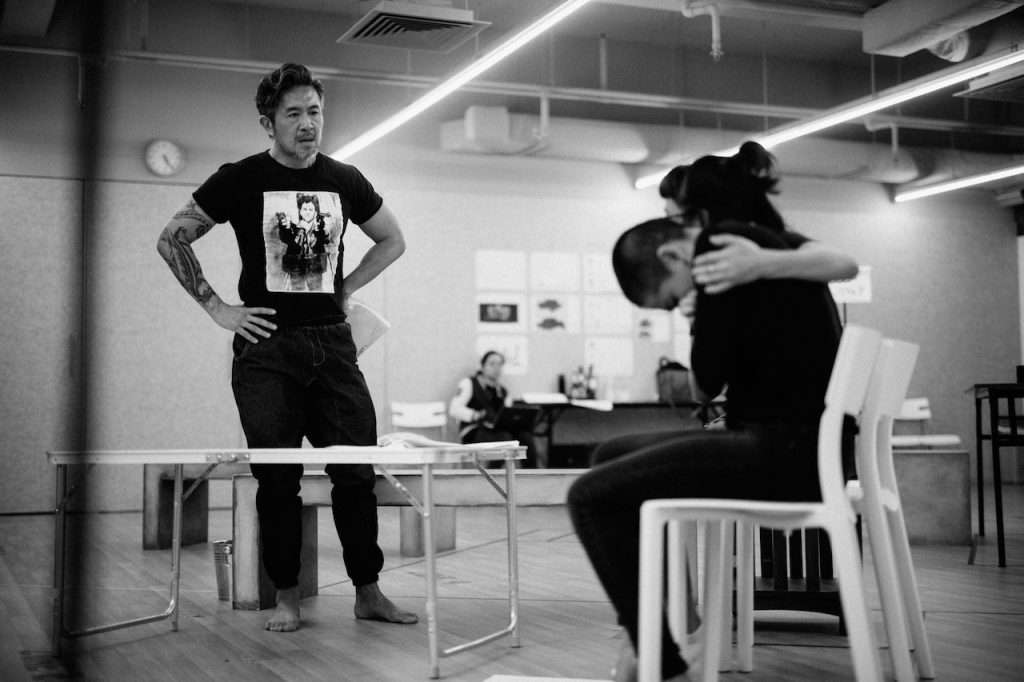
The short answer: NOT AT ALL. Even for an award-winning theatre company with seasoned actors.
The long answer is less straightforward and entails an unsettling process of self-examination.
For a start, the main challenge is not to make the play a teaching tool for how to deal with sexual harassment and assault. Rather, the director, Tracie Pang, says the play is “a reflection of how and why people respond the way they do in the real world”. Doing justice to the survivors’ stories involves accurately portraying their plight and the choices they make, regardless of whether you’d do the same.
This means helping the audience to identify with every character.
One of them is Thomas Pang’s character, a 23-year-old law student and perpetrator in the play. Thomas believes in playing him as “a three-dimensional human being” for his role to have an impact on men in the audience.
“There’s no point where men should go, ‘Oh that’s not me.’ It’s less interesting to paint my character as a villain because that makes people dissociate. The point is none of these characters are serial rapists; their situations are all very commonplace and mundane,” he explains.
Take another example: Adrian Pang’s character, the uber-masculine CEO of a tech company. To research his role, Adrian spoke with men from their 30s to 50s in similar positions of power to get a feeling for what makes them tick, discovering that “gender politics may have evolved but many men haven’t evolved with them”.
Even so, Adrian makes it clear that his character is a product of his time, his upbringing, the things that have happened to him, and the things he has done. Like many of us, these make him deeply flawed but deeply relatable.
“All the characters are drawn from real people—people who are full of contradictions, who have double standards, who change their minds, who make sacrifices but will betray someone they love, who are kind but capable of cruelty, who are wise but make bad choices. It’s important that we don’t make excuses for any of it,” he says.
To truly believe in the play’s message and immerse themselves in their role requires more than excellent acting skills. It requires the cast to dive deep into their own memories and experiences, then possibly unlearn the narratives about themselves and the world that they have always held.
When you know better, do better.
Pam, whose character is a human resource director in the play, knows that having victims or survivors remain quiet is exactly the reaction that perpetrators want. After all, she didn’t shout at the man who grabbed her chest when she was in her 20s, or the one who flashed himself at her when she was a child.
Even though many women like to think we would scream if we were harassed, when something actually does happen, the sheer shock of it can silence us; we ‘let it happen’.
Then there are also incidents that, although less horrifying and by no means a sex crime, stem from the same culture that enables sexual harassment. Tracie says she used to endure ‘bro culture’ in a male-dominated crew room by “laughing with them to get along”.
If hindsight is typically 20/20, that rule doesn’t seem to apply to #MeToo. Since the worldwide movement began, Oon Shu An, who plays a literature professor, found herself questioning whether certain incidents that happened to her constituted sexual harassment.
In today’s context, they might well be, even though it didn’t feel ‘wrong’ when they occurred.
How, then, do you navigate these ‘new boundaries’ without beating yourself up about who you were or what transgressions you overlooked? It was Maya Angelou who said, “When you know better, do better”. But is change ever that straightforward, especially if everyone seems criminally afraid to make any missteps in this political climate?
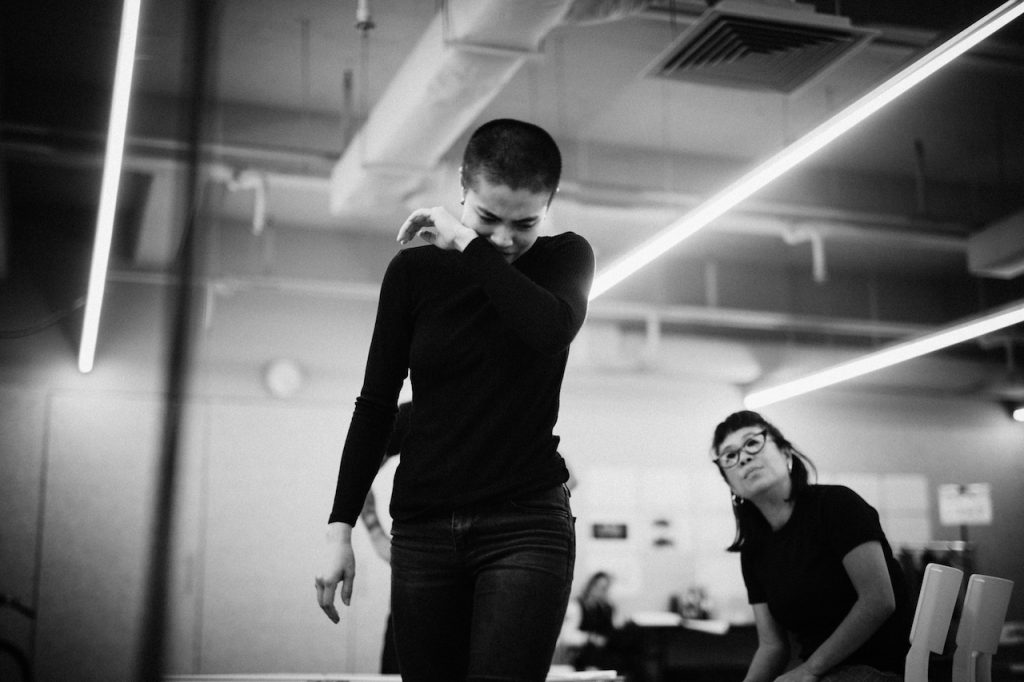
While he’s vague about his own experience with sexual harassment, I suspect many can empathise with the repression of certain memories for the sake of closure and mental wellbeing.
“I have some images of something happening to me when I was a child, but the images go up to a certain point and then stop. And I can’t, for the life of me, jog my memory any further. Maybe it’s a very deeply repressed memory that I’ve buried for my own preservation,” he shares.
Likewise, while writing the play, Ken also wondered whether he’d slipped up during his younger days, such as by mistakenly assuming a moment was “sweet and romantic” when it was in fact a “gross” moment for the woman he was with.
“It’s a shitty thing to have to ask yourself. I wish I didn’t have any doubt that I was the perfect gentleman, that I never pushed too hard in all my past sexual encounters. Still, if through this play, a few more men ask themselves these questions and have these discussions with their friends, families, or colleagues, then I’d have done my job,” he says.
Despite sitting through more than 100 interviews with survivors, he was never desensitised to the stories.
“You have to be vulnerable as an interviewer too, and I was never on the fence about whether to believe survivors. I owed it to every interviewee to be present, open, and non-judgemental,” he clarifies.
“Every time I thought I’d heard it all, there’d be another shocking, outrageous—sometimes even funny—account that made me go, ‘Oh my god, we have not come close to understanding the full scope of what survivors go through.’”
In a pull-quote used in the play’s promotional materials, Ken says #MeToo is as much a men’s issue, if not more so. He brings up my final interview question (I’d sent it to him earlier) about which group or community he’d most hope would catch the play.
“I would like young men, teenage boys, to see this play. Men have to be willing to cede some power without feeling like it’s a compromise of their dignity. They have to be willing to be vulnerable and say some things are not okay without fear of being labelled a wimp,” he states firmly.
After witnessing Ken, Adrian, and Thomas (the only male cast members I interviewed) grapple with their privilege, I only wish more people understand the truth they do. True progress begins when the privileged majority listen to, fight for, and communicate the stories of the vulnerable in society.
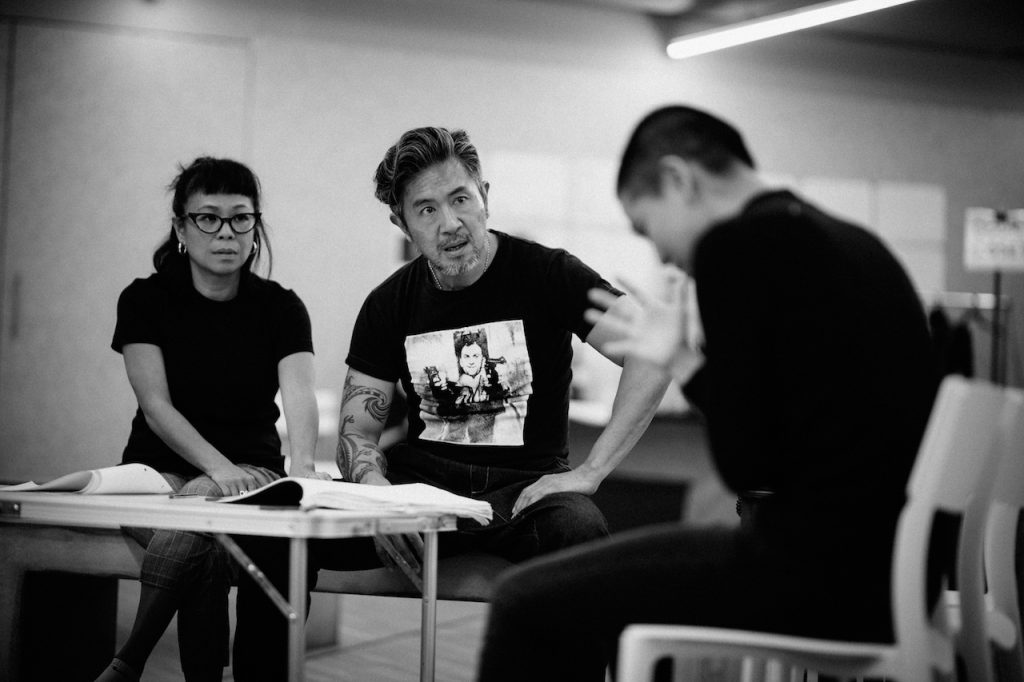
Not only did I have flashbacks to the secondary trauma I experienced when I broke a story on sexual harassment and assault last year, I was also reminded of the burden to do real stories justice by faithfully portraying their nuances to the public. The latter requires a certain degree of both detachment and empathy, and an honest scrutiny of the value of your own voice in the conversation.
I didn’t know how audiences would receive a topic that is still evolving, and whether a ‘mere’ theatre production would be taken seriously in the local #MeToo conversation.
As a woman, I understand that keeping silent is often a necessary coping mechanism and a way of self-preservation. But as a journalist, I believe in the power of speaking up, not unlike what Pangdemonium hopes to achieve with the play: start difficult conversations.
Some may say that not all voices deserve equal consideration, especially if they espouse unprogressive views. But, according to many in the cast, the key to a more compassionate society is being willing to understand those who oppose our worldview.
“Sometimes we don’t know how harmful our thinking can be, so we need to be open to being wrong. Even if it’s saying something that may be completely fucking stupid, we have to talk about it,” admits Shu An.
“Some things might just be ‘politically incorrect’, some other things are clearly right and wrong. If we can’t ask those questions, we can’t find the answers. When I talk to my male friends and they acknowledge they have male privilege, it’s such a relief.”
Thomas explains that his personal perspective shifts too whenever he reads the play, and his feelings and viewpoints are never crystallised. They evolve depending on who he’s speaking to, the discourse between the cast during rehearsals, and how he evaluates his feelings every time he talks about it.
“What’s important is the flexibility and responsibility to interact with and react directly to the people I have these conversations with,” he says.
“I’m very vocal and curious about the world and the work that I do. But when a female cast member who is just as vocal and curious doesn’t get as many points across or speaks up then stops, I make it a point to put the focus on her. I’m not trying to be patronising, but I feel a female perspective needs to be heard more for this play.”
That said, the difficulty of broaching the topic of sexual harassment and assault doesn’t come down to the gender of those having the conversation.
Instead, privilege is what makes someone closed off to having difficult conversations.
“With privilege comes class, race, and economic status. The difficulties in conversation happen because people are unwilling to see beyond their own experience,” explains Tess Pang, who plays a 27-year-old computer engineer.
Part of dismantling one’s privilege, she adds, is accepting and understanding that we don’t get to judge anybody’s way of dealing with their harassment or assault. We can only “allow them their own journey”, even if they end up “submitting to the patriarchy”.
Similarly, Pam admits she used to encourage survivors to report, tell somebody, or get the perpetrator out of the position of power. But she has since learnt that the decision to report, keep it under wraps, or go for therapy is not her prerogative.
“It’s entirely the survivor’s call, because it’s her assault and her experience,” she says.
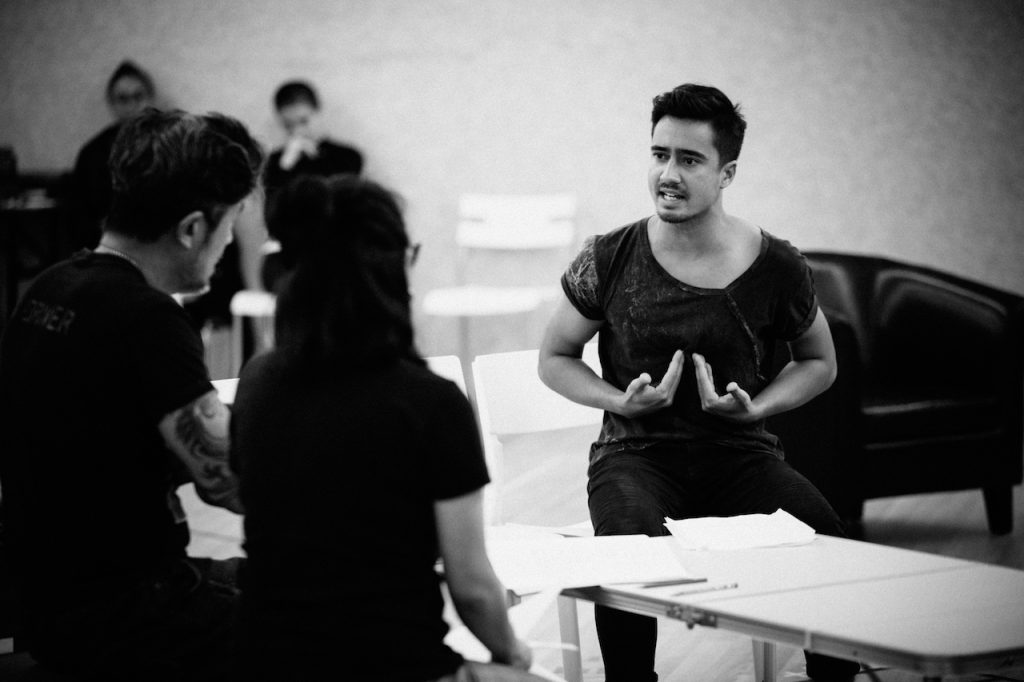
That, however, is possibly the point.
Ken says, “This play is going up at a time when the grim reality of #MeToo is gaining momentum in Singapore. People will be unnerved by what they see on stage. Hopefully, they’ll walk away with lingering questions: Have I been sexist? Have I been a bystander who did nothing when someone else was being violated? How can I change things, even in the tiniest way?”
Even though the cast is hesitant to believe that a single play could generate radical change, a single statistic keeps coming up in all my interviews with them. In the fourth quarter of 2017 (i.e. after #MeToo began in October 2017), AWARE’s Sexual Assault Care Centre saw a 79% increase in cases, and that percentage has not abated.
To me, it’s a clear sign that while most women in Singapore might not be protesting on the streets or reporting their perpetrators to the police, they are—in their own private ways—finally talking about the sexual harassment and assault that happens regularly to their bodies. In the end, speaking up doesn’t mean being loud; it just means not being silent.
But as important as personal agency may be, the onus shouldn’t solely be on women to be stronger, braver, or push for change.
Fuelled by a pivotal movement, a difficult conversation, or a momentous theatre production, boys must become strong and compassionate men who realise it’s their responsibility to make the world safer for all women.
This is what I hope happens to pretty girls.
Have something to say about this story? Write in: grace@ricemedia.co or community@ricemedia.co.

